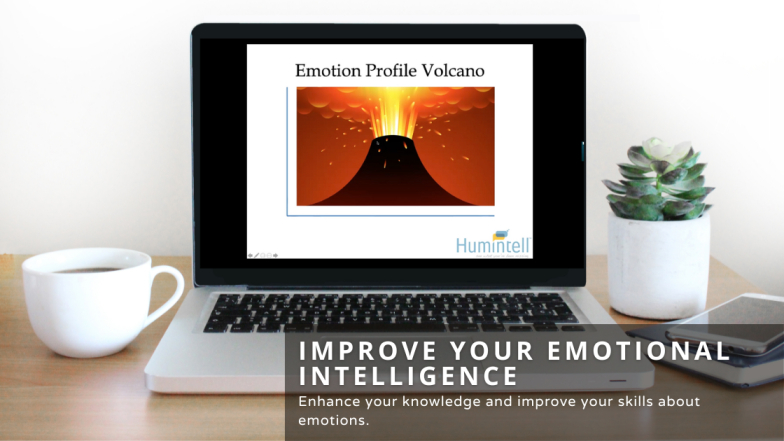*Sayaka is a regular contributor to David Matsumoto’s blog. A 2008 Olympian in the sport of judo, Sayaka shares her thoughts regarding how emotions affect critical thinking. 
Emotions and critical thinking are a part of everyday life; it doesn’t matter who you are or your profession. It’s how you control and regulate your emotions that determine your success in any given situation.
I know first-hand that being an Olympic Athlete is an extremely emotional experience and I also know the importance of critical thinking, especially when you’re emotional.
I’ve faced a lot of ups and downs during my competitive career and truly understand “the thrill of victory and the agony of defeat”.
Some emotions and feelings are impossible to describe in words: how can you explain to someone the feeling of losing a crucial match in the last 10 seconds or walking into the Bird’s Nest for the Opening Ceremonies of the 2008 Beijing Summer Olympics in front of 90,000 people all cheering for you?
As a result of my experiences, I have come to a profound conclusion: the most striking characteristic of being an elite athlete for me is that it is as much an emotional experience as it is a physical one.
It is by controlling their emotions that athletes are capable of maintaining high levels of critical thinking and focus, regardless of what sport they are in.
How do emotions affect critical thinking? Research has suggested that when we are very emotional, our critical thinking abilities decrease dramatically. The ability to think critically is crucial to athletes in particular, who must stay incredibly focused during competition.
If athletes do not control their emotions, there are serious consequences. The more emotional they get, their ability to think critically decreases and they lose focus.
Where does this come from?
 From an evolutionary perspective, this makes a lot of sense, especially because emotions and affective experiences existed much earlier in our phylogenetic history than did the complex critical thinking skills modern humans have.
From an evolutionary perspective, this makes a lot of sense, especially because emotions and affective experiences existed much earlier in our phylogenetic history than did the complex critical thinking skills modern humans have.
We needed those emotional reactions to help us navigate our complex social world and to adapt to threats in the environment in order to survive with minimal conscious deliberation.
Emotional reactions helped us deal with the tiger jumping out at us all of a sudden, when we found our valuable food or mates were absconded, or when we ingested spoiled foods or drinks.
If we didn’t have emotional reactions that allowed us to adapt to those and many other situations, we wouldn’t be here today! Or more precisely, those individuals who did not have those emotional reactions were selected out of the gene pool naturally, and those with the emotion system (that is, the rest of us today) were selected in to survive.
Even though many situations in our evolutionary history may not exist today, we still have that emotion system in us.
Examples of how emotion affects critical thinking
An example of this loss of focus and control occurred at the 2006 Winter Olympic Games in Torino, Italy when snowboarder Lindsey Jacobellis made the crucial mistake of celebrating her win before the race was over.
Jacobellis held a significant lead over Tanja Frieden of Switzerland for the whole run, until she performed a celebratory trick on the second to the last jump and fell. While Jacobellis struggled to get up, Frieden passed her, winning the gold medal, becoming Olympic Champion.
In a press conference after the event, Jacobellis admits she lost focus. She has been quoted in the Washington Post saying “I was having fun. Snowboarding is fun. I was ahead. I wanted to share my enthusiasm with the crowd. I messed up. Oh well, it happens.”
Although being a silver medalist at the Olympics is an incredible feat, her momentary lapse of emotional control will surely haunt her forever.
Jacobellis’s experience illustrates the fundamental necessity for athletes to control and regulate their emotions during competition. How you control those emotions on the playing field is crucial to staying focused and to achieve the desired outcome of competitive success.

Thanks for a very interesting blog post. I’m a snowboarder by hobby. I’d do it for a living if I could, it’s incredibly fun. However, Lindsey’s fall may not totally represent the whole point of keeping emotions in check. There are an enormous number of times when athletes celebrate before crossing the finish line – including snowboarding – and win. Every so often that move fails, as it did for Lindsey in that video (which I can’t see in the United States, but I know the situation very well). In my view, that does not fail in the vast majority of times I’ve seen it. It’s very noticeable when it fails, but usually forgotten when it does not fail. One example us Usain Bolt’s run in the 100 meter olympics, where he celebrates 15 meters before the finish line slowing down and raising his arms and pounding his chest – all BEFORE he crosses the finish line. Hopefully you can see this (they show it in slow motion starting around 4:00 into the video): http://www.youtube.com/watch?v=qslbf8L9nl0
So my reading of the evidence seems to show that some times athletes celebrate before the finish line and win gold medals as Usain Bolt did, and sometimes they fall, like Lindsey did.
I’m very interested in learning more about this comment: “It is by controlling their emotions that athletes are capable of maintaining high levels of critical thinking and focus, regardless of what sport they are in.” I’m thrilled that Sayaka shared her thoughts here, and I hope she does again. How did you learn to control your emotions? Can you describe what that is like in more detail, and more importantly to me – how can the rest of us start to practice this discipline? How do you know when you’re doing this well, versus not well? I could ask a ton more questions 🙂 I hope there are more blog posts from her to describe her knowledge of emotions from her perspective – very well done! 🙂
Russ Conte
Thanks for your comments Russ, I really appreciate them.
I agree with you in that I have seen people celebrate a win before the match or race is over, and they still won. I did witness Usain Bolt’s celebration in Beijing and think that he just knew he was so far in front of everyone that he celebrated before the finish line.
However, I still believe that it is necessary to stay focused up until the very last second of the match or race. Especially in a sport like judo, where you can lose up until the very last second, you hardly ever see athletes celebrating a win with 20 or 30 seconds to go. Its often difficult to stay focused when you know your goal is so close, but I do think its critical.
Thank you for your additional comments. I hope to answer some of your questions in an upcoming blog post.
Sayaka
I’m glad to read your post as well Sayaka, thank you for sharing from your experience! Russ asked some great questions and I look forward to reading more from your perspective in the future. 🙂
In law enforcement, you can’t always have the mindset that everyone is guilty and leave all your personal problems at home. Otherwise it could end up a very bad day or even lead to loss of job, or even imprisonment. Approach everything with a clear mind set.